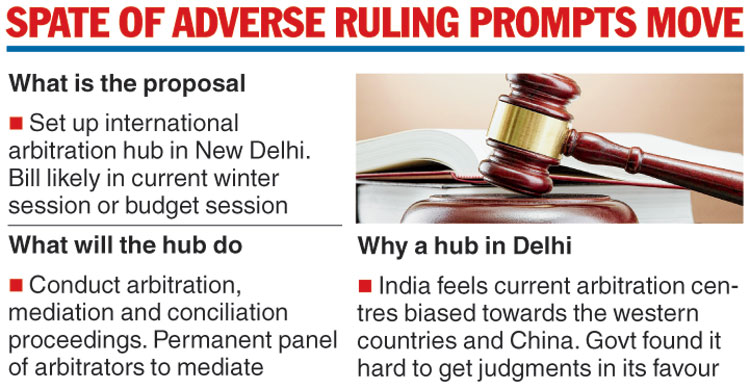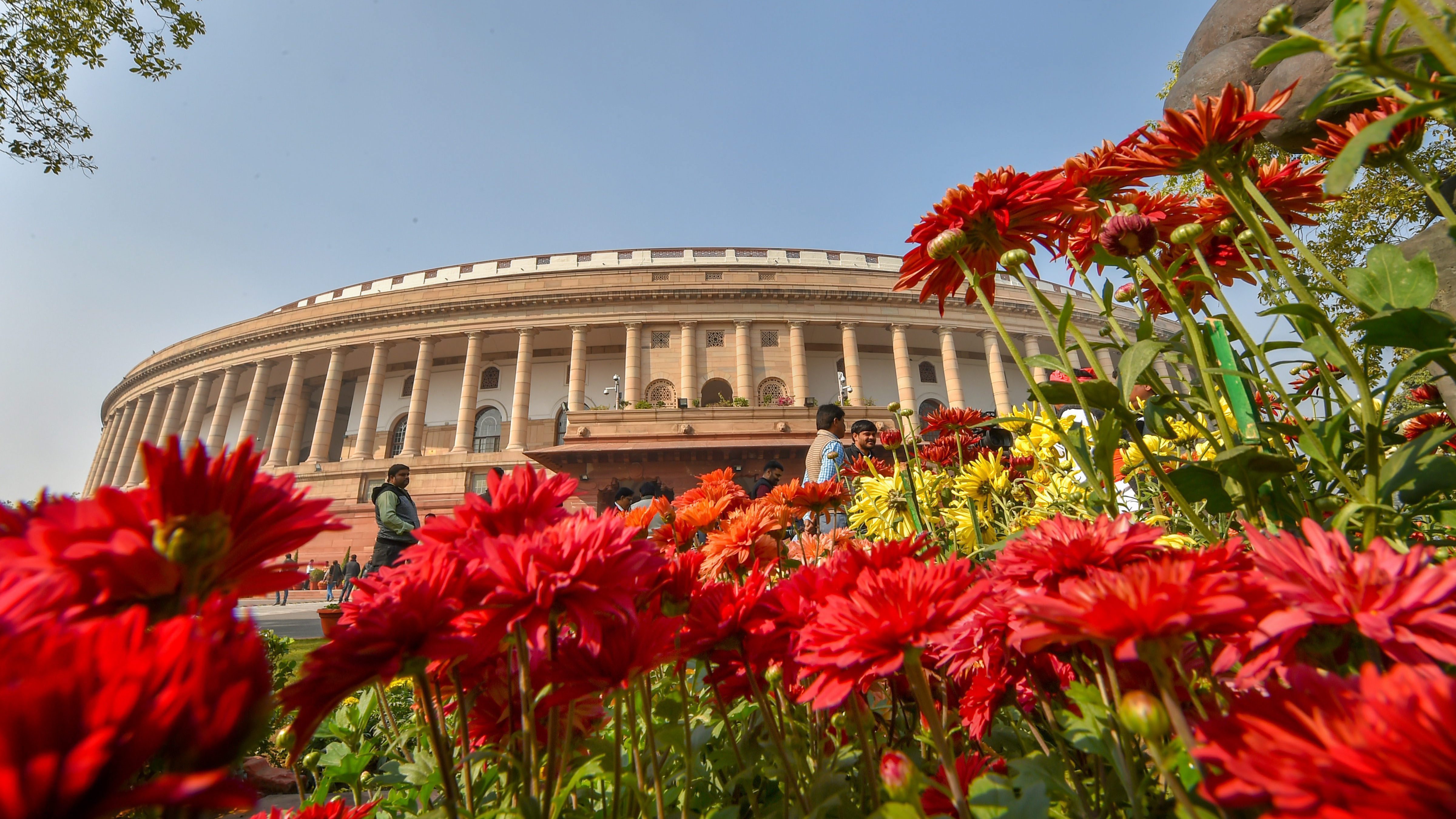North Block is pushing for the passage of a bill to set up an international arbitration hub in India after facing several reverses in global arbitration tribunals.
Top officials said the government is trying to get a bill — the New Delhi International Arbitration Centre Bill, 2018 — passed in the winter session of Parliament, failing which it would like the bill to be cleared in the budget session.
India has been having a tough time in getting international arbitration awards in its favour ever since it lost its first case in 2011 against White Industries, an Australian mining company that fought a case against state-run Coal India Ltd citing the India-Kuwait investment treaty.
A year later, the government faced a spate of arbitration claims after India cancelled 2G telecom licences based on a judgment by the Supreme Court.
Since then, it had to battle a host of arbitration proceedings, including Vodafone, Cairn India, Nokia and, in a peculiar case, GMR’s arbitration against the Maldives government, which threw out the company from running its airport.
Finance ministry mandarins suspect the current international centres of arbitration such as London, Amsterdam and Singapore often work in favour of multinationals and at times are politically influenced by the global powers – mostly western, but now increasingly the Chinese government.
The bill, introduced in Parliament earlier this year, seeks to provide for the establishment of the New Delhi International Arbitration Centre (NDIAC) to conduct arbitration, mediation, and conciliation proceedings. The bill provides the NDIAC will establish a chamber of arbitration, which will maintain a permanent panel of arbitrators.
This law was brought after a suggestion by a high-level committee under the chairmanship of B.N.Srikrishna, a retired judge of the Supreme Court.
The government is also working on a model investment treaty with countries where it has inserted an arbitration and dispute settlement clause that forces a foreign investor to first exhaust domestic legal challenges before seeking international arbitration. Officials say the new clauses would not let investors such as Vodafone or Cairn to rush to an international arbitration council without fighting the case in the Supreme Court.

The Telegraph
Vodafone case
The Vodafone arbitration case arose after the Finance Bill, 2012 brought in an amendment, which clarified that the Income Tax Act, 1962 can tax any deal where the asset underlying the sale or purchase is in India, even if the deal is struck abroad. Critics termed the change in law retrospective. The amendment itself was brought after the Supreme Court struck down an earlier Bombay high court judgment upholding a tax demand on Vodafone.
The amendment, its supporters contend, had drawn flak despite similar tax changes being passed by the British and other legislatures. The Indian government had staunchly defended its taxation move, pointing out that if the deal had been done in India or the UK, where Vodafone was based, the company would have been liable to deduct tax at source before paying for the stake sale.
If the government allowed Vodafone to go scot-free, it would be treating it differently from other companies which chose not to use shell firms and tax havens to structure their mergers and acquisitions.










